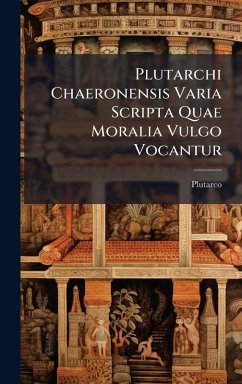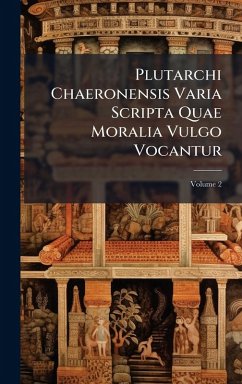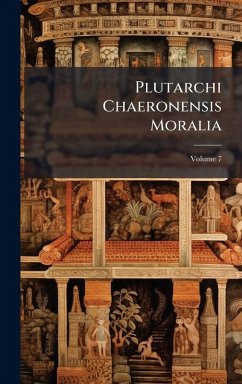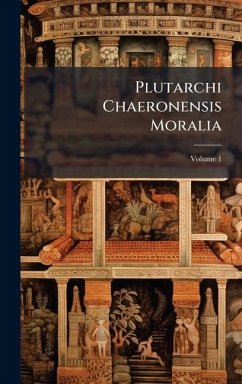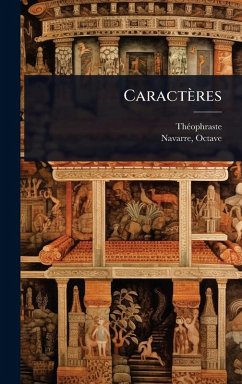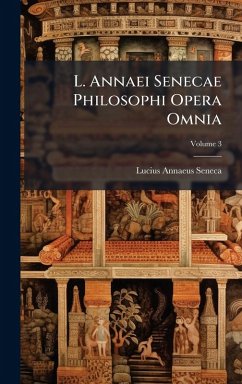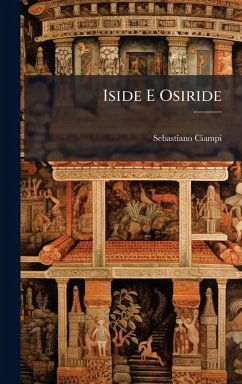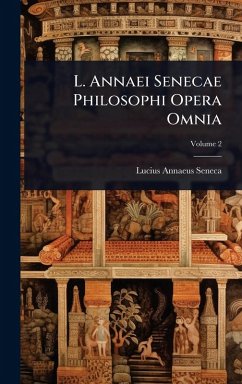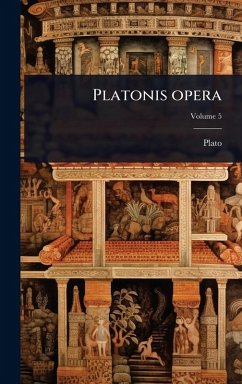
Plutarchi Chaeronensis Varia Scripta Quae Moralia Vulgo Vocantur
Versandkostenfrei!
Versandfertig in über 4 Wochen
38,99 €
inkl. MwSt.

PAYBACK Punkte
19 °P sammeln!
Plutarchi Chaeronensis Varia Scripta Quae Moralia Vulgo Vocantur, Volume 4, is a collection of moral essays by Plutarch, meticulously edited according to the most reliable books. This edition offers readers access to Plutarch's profound insights into ethics, virtue, and practical wisdom. Plutarch, a philosopher, biographer, and essayist of the Roman era, wrote extensively on a wide range of topics, blending philosophical inquiry with historical anecdotes. His 'Moralia' showcases his ability to synthesize Greek and Roman thought, providing guidance on living a virtuous and fulfilling life. This...
Plutarchi Chaeronensis Varia Scripta Quae Moralia Vulgo Vocantur, Volume 4, is a collection of moral essays by Plutarch, meticulously edited according to the most reliable books. This edition offers readers access to Plutarch's profound insights into ethics, virtue, and practical wisdom. Plutarch, a philosopher, biographer, and essayist of the Roman era, wrote extensively on a wide range of topics, blending philosophical inquiry with historical anecdotes. His 'Moralia' showcases his ability to synthesize Greek and Roman thought, providing guidance on living a virtuous and fulfilling life. This volume provides invaluable insights into the moral and intellectual climate of the ancient world, remaining relevant for contemporary readers interested in classical philosophy and literature. This work has been selected by scholars as being culturally important, and is part of the knowledge base of civilization as we know it. This work was reproduced from the original artifact, and remains as true to the original work as possible. Therefore, you will see the original copyright references, library stamps (as most of these works have been housed in our most important libraries around the world), and other notations in the work. This work is in the public domain in the United States of America, and possibly other nations. Within the United States, you may freely copy and distribute this work, as no entity (individual or corporate) has a copyright on the body of the work. As a reproduction of a historical artifact, this work may contain missing or blurred pages, poor pictures, errant marks, etc. Scholars believe, and we concur, that this work is important enough to be preserved, reproduced, and made generally available to the public. We appreciate your support of the preservation process, and thank you for being an important part of keeping this knowledge alive and relevant.



